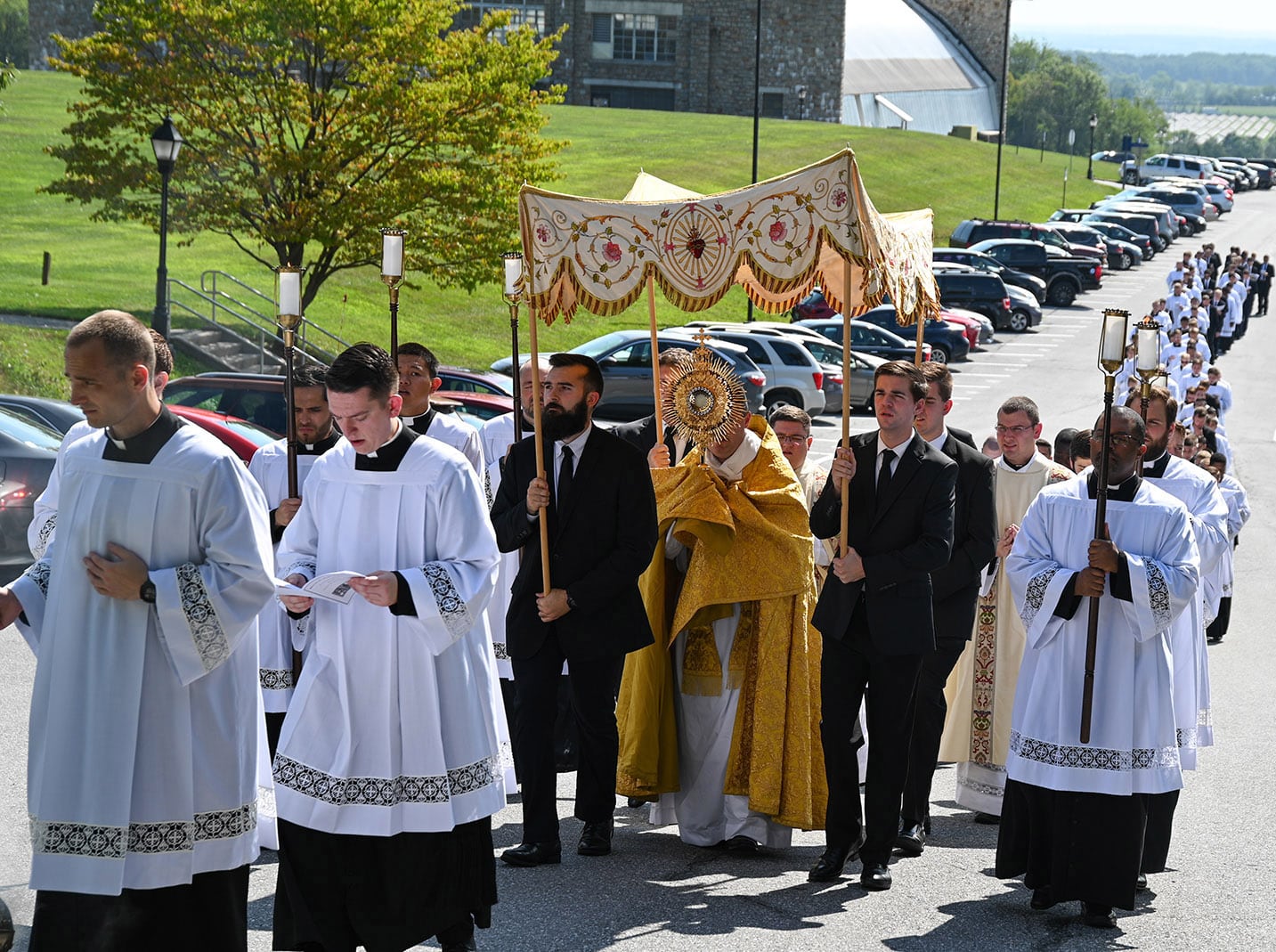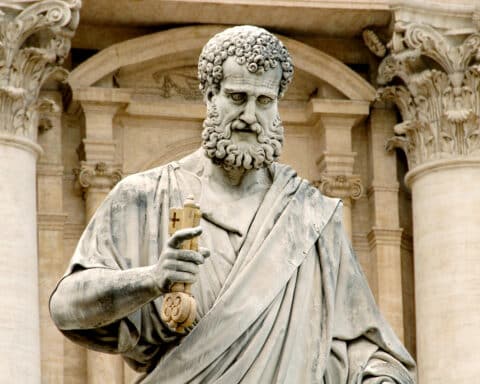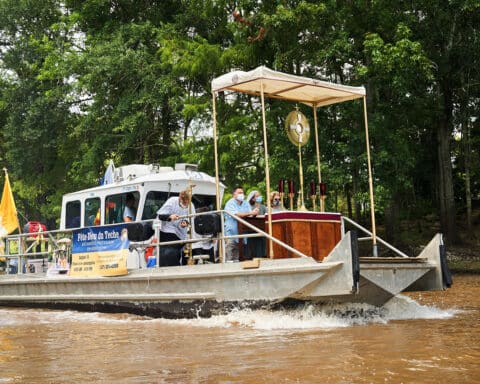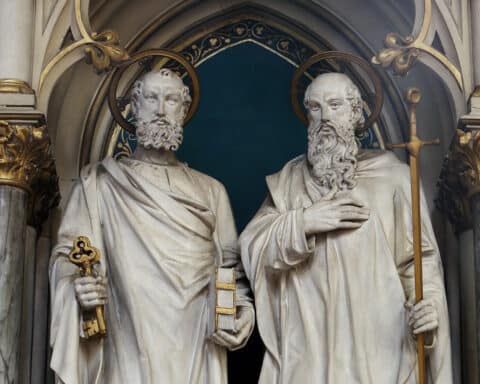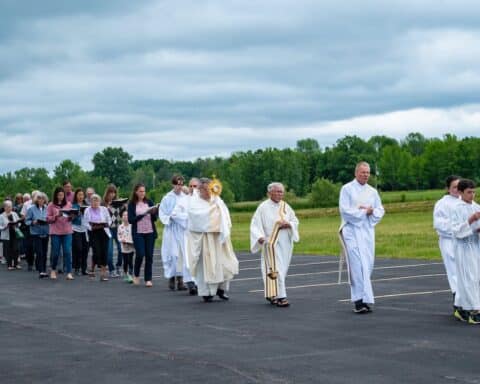As I carried the monstrance across a quiet campus, I marveled at the beauty of our procession. It was a sunny (and hot!) Sunday morning. Familiar hymns, sung with gusto by the seminarians of Mount St. Mary’s, gently echoed off the mountains. Incense wafted. Torches flickered. And at the heart of the procession was the Blessed Sacrament, in a beautiful monstrance, radiating the love of Christ.
Peter, the rock
The Gospel for that Mass centered on Matthew 16:18, where Jesus says to Peter, “You are Peter, and upon this rock I will build my Church.” As we walked, I couldn’t help but reflect on the profound meaning of this Gospel passage in the context of the Eucharistic procession. Who was Peter to have been chosen for the Church? Who was I to be carrying this monstrance?
Just as Christ entrusted Peter with the keys to the kingdom, so, too, did he entrust the Church with the teaching authority to be a guiding light in the world. The act of processing across campus with the Eucharist was a powerful reminder of our call to be living witnesses of our faith.
The Church will endure
There are so many times when it feels like the Church might not endure. “Christianity,” Pope Francis has said, “especially in Europe, but also in a large part of the West, is no longer an obvious premise of our common life, but rather it is often denied, derided, marginalized or ridiculed.” Another announcement of parish mergers comes. A school closes. A priest gets embroiled in a sexual scandal. Parents speak of their children leaving the Faith. Disputes about doctrine and liturgy roil our unity.
But Christ promised the barque of Peter would not fail. Our Lord says, “the gates of the netherworld shall not prevail against it” (Mt 16:18). I found myself consoled as I clung to the monstrance, thinking: as long as we cling to Christ in our midst, what can stand against us?
Jesus didn’t come to establish a civilization. The culture we’ve built in the West has, until late, been in the service of the Gospel. And seeing that culture collapse causes much pain to believers. But as it happens, Jesus came to establish the Church.
To the ends of the earth
The Gospel passage’s significance deepened as we reached the goal of our procession: the mighty front porch of Mount St. Mary’s Seminary. Holding the monstrance high and gazing out on the vast landscape brilliantly lit by the morning sun, I nearly wept. I slowly made the shape of the cross, imparting benediction.
I found myself facing the reality that the Church is not a mere historical institution; it is alive and active, guided by the same Spirit that moved Peter to profess Jesus is the Messiah, “the Son of the living God” (Mt 16:16). And the Church would carry that love of the living God to the farthest corners of the earth. The Great Commission of St. Matthew’s Gospel rang in my ears: “Go, therefore, and make disciples of all nations, baptizing them in the name of the Father, and of the Son, and of the holy Spirit, teaching them to observe all that I have commanded you. And behold, I am with you always, until the end of the age” (Mt 28:19-20).
As the procession dispersed, I felt a profound sense of gratitude for the opportunity to participate in this moving expression of our faith. Peter is the rock because faith in Christ had made it possible for him to be so. I was filled with hope, seeing the men God has called to serve in his Church as his priests. And I was filled with love for the God who had known it would be this way from before time began.

